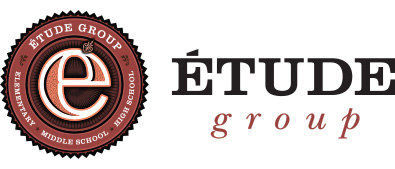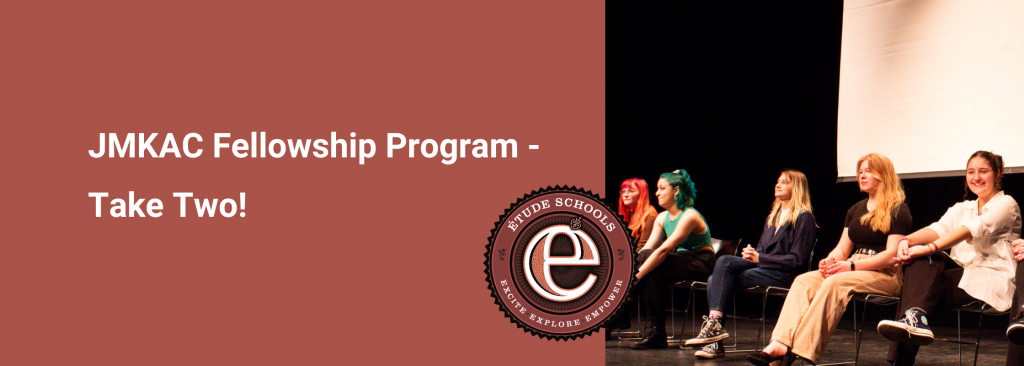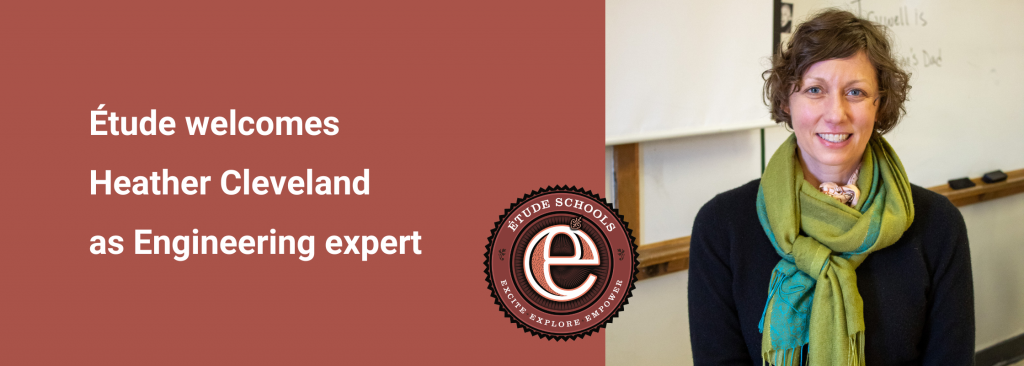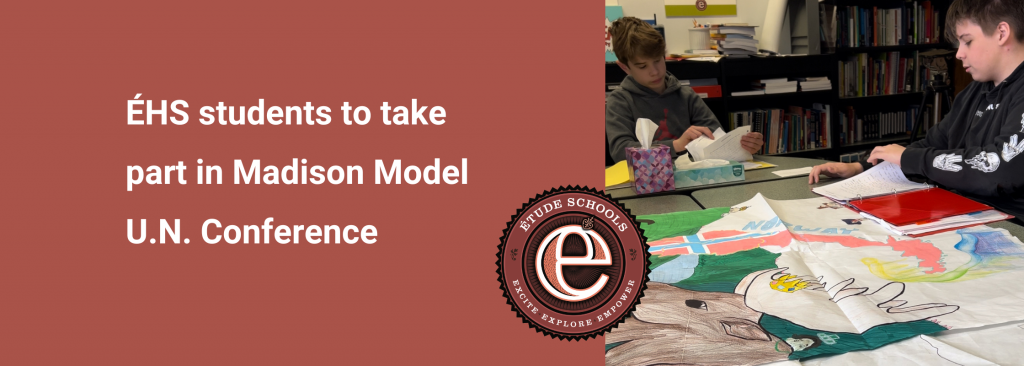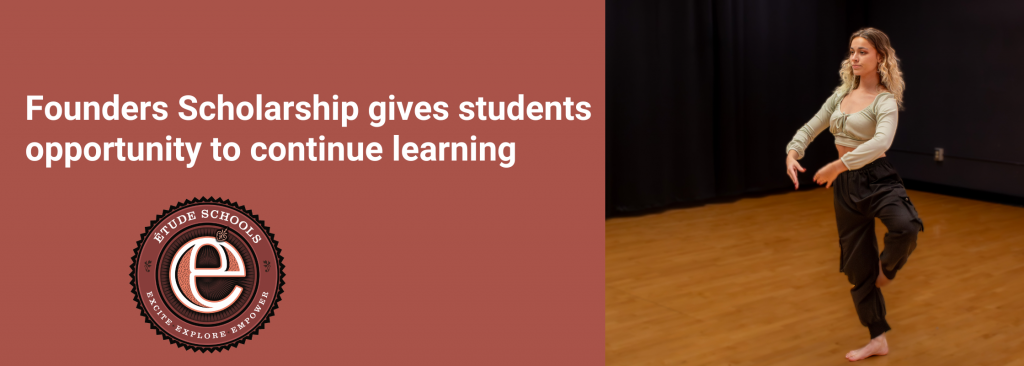by: Ted Hamm
New Teacher Shares Experiences as a Refugee with ÉMS Students
When the students of Étude Middle School are dreaming about their future and need a burst of inspiration, they only have to look at their English teacher, Ehdoh Htoo.
Born in Myanmar, Htoo was 5 when his family fled to a refugee camp in Thailand, and 10 years later they came to America. He learned English at South High School and got his degree from Lakeland University.
He didn’t start out wanting to be a teacher, but then he found himself the classrooms of some excellent teachers who changed his life.
“Most people I look up to are teachers,” he said. “They make a difference in my life, teach me how to be a good person, a good citizen in general. I believe teaching is a very rewarding job. It might be hard but when you see the result, it’s a feeling you cannot describe.”
As an English Language Arts teacher, Htoo has the opportunity to share his story with students when they’re reading relevant books together. And he said he’s always surprised and impressed with the way his students respond.
“When I talk about it – Myanmar, living as refugee — they feel like they want to know more about it,” he said. “I’ve shared my personal situation when it relates to a book.”
For example, his class read “Other Words for Home,” a Newberry Award-winning book about a young girl who comes to the U.S. from Syria. It provided a great springboard to talk about refugees, immigrants and the trials people go through.
“Refugees and immigrants are different,” he said. “Immigrants do research and know something about where they’re going. Refugees we don’t know where we’re going to end up; we don’t know anything about the place we’re going to be living.”
Htoo’s transition from Thailand to Sheboygan was, understandably, rough.
“The only thing I knew was, ‘Hello, how are you, I’m good thank you,’” he said. “None of my family spoke (English) either. It was hard at first. The weather’s also different. We got here in February — it was very cold; in Thailand it was hot still. We came here with no tennis shoes, coats, jackets. We were freezing, we don’t know how to turn on the heat.”
Little by little it got better.
“The first time we saw snow we were really happy,” he said. “We played in the snow for hours just to feel the snow.”
It was difficult for him when he started school in Sheboygan, but in overcoming the challenges he found his purpose.
“When I came to America, came to school and learned English, it was very hard for me,” he said. “My teacher didn’t speak my language; it was hard. I had to figure out how to do the work on my own. It was a struggle, so that’s why I want to be teacher — so I can be their (support). I relate to them because I come from this situation as well.”
Teacher Addie Degenhardt said Htoo’s enthusiasm for teaching and his background make him a unique resource for students.
“We like to choose books that have international global perspective so kids can critically think about the world around them,” she said. “It’s really important, but there’s only so much we can do — we have not experienced that ourselves. Now we have a teacher whose experiences are similar to characters in the book and it lets students experience on a different level.”
Htoo said he’s especially happy to be teaching middle school.
“I love middle school,” he said. “They’re the age when they’re cool, they know everything, but not. You can still have conversations with them. Kids love to see someone they can also relate to.”
by: Ted Hamm
Model U.N. Students Get Experience Changing the World
Three Étude High School students got hands-on experience in high-level diplomacy and political intrigue at a Model U.N. event in November.
by: Ted Hamm
Making Change Happen at Étude
There’s a quiet new initiative going on at Étude High School, thanks to the experience of one student and teacher last summer.
by: Ted Hamm
ÉHS Freshmen Take Part in Wisconsin Youth Institute at UW-Madison
Two Étude High School freshmen took part in the Wisconsin Youth Institute in May, getting a high-level experience in global affairs.
by: Ted Hamm
ÉHS Students Gain World Affairs Experience
If one day a student from Étude High School ends up in a diplomatic post or a high political office, it’s a safe bet they got a start at the World Affairs Seminar.
by: Ted Hamm
The Evolution of a Natural Leader
When Étude High School needed to select one student to attend the Wisconsin Leadership Institute earlier this year, Julian Panzer was the natural choice. The only tough part was convincing Panzer himself.
by: Ted Hamm
ÉHS Students Take Part in Second JMKAC Fellowship Program
Last year, Étude High School and the John Michael Kohler Arts Center embarked on a new collaboration that culminated in seven students creating and presenting unique works of art that tied in to the Arts Center’s theme.
by: Ted Hamm
A New Spin on Engineering at ÉHS
Up to now, STEM students at Étude High School have immersed themselves in robotics and traditional engineering themes. This semester, things are a little different.
by: Ted Hamm
ÉHS students to take part in Madison Model U.N. Conference
In March, the students of Étude High School will have an opportunity to do something brand new for the school: Participate in a Model U.N. program with students from all over Wisconsin.
by: Ted Hamm
Founders Scholarship gives students opportunity to continue learning
The Étude High School Founders Scholarship offers Étude students the opportunity to continue exploring their creativity, innovation, and passions during the summer break. This scholarship is distributed to students entering Étude High School grades 9-12, for full or partial tuition for summer pre-college experiences, camps, and programs. Last summer the Founders Scholarship was awarded to senior Liliana Heinen.
